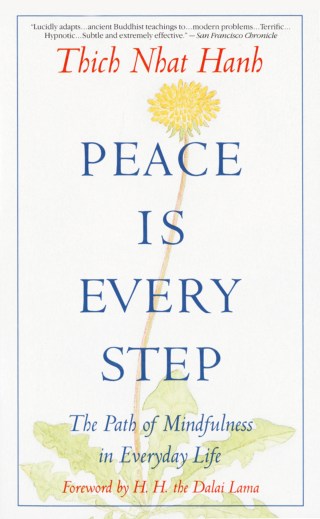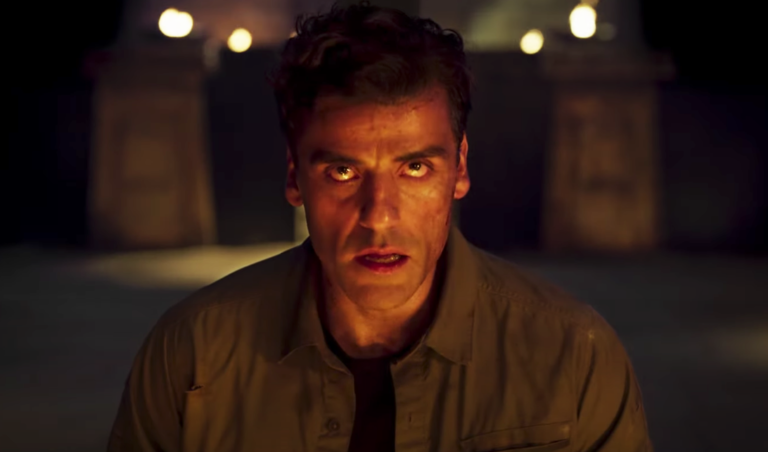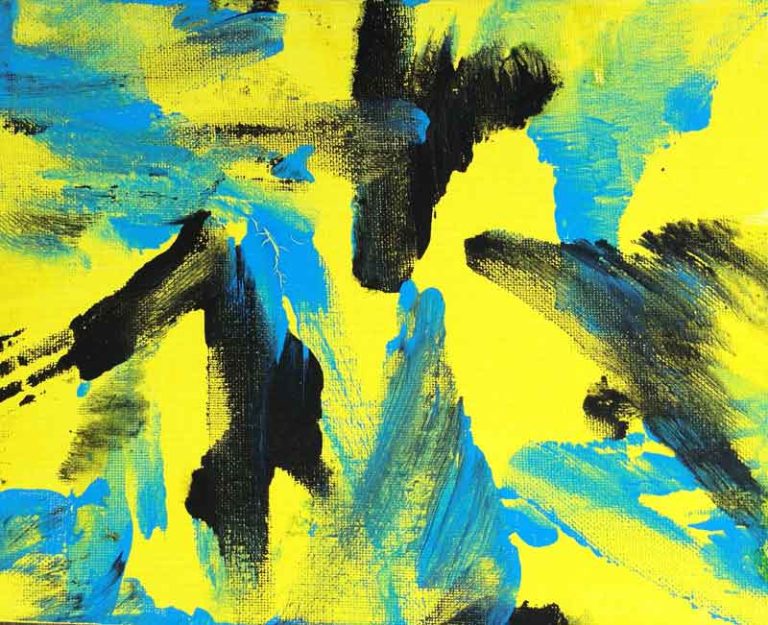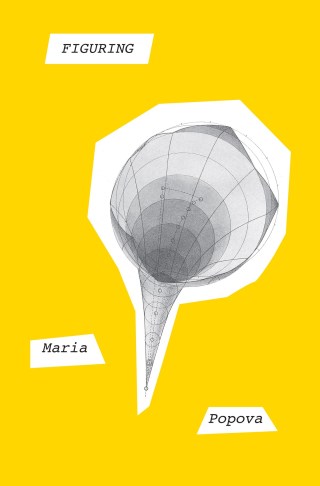This might be, as Elizabeth Gilbert observed in the wake of losing the love of her life, why love and loss have something elemental in common — each is “a force of energy that cannot be controlled or predicted,” one that “comes and goes on its own schedule… does not obey your plans, or your wishes [and] will do whatever it wants to you, whenever it wants to.”
The most confounding aspect of grief is its fractal nature — the one great trunk of loss branches and twigs into the trivial, splintering reality into an infinity of losses until we come to look at the world (as that lovely verse by Lisel Mueller goes) “as if what exists, exists so that it can be lost and become precious.” The small things we lose come to feel so precious that we dissolve into tears over the book that fell out of the bicycle basket on the way home, the trivial twig dragging with it the unbearable trunk. It is a universal experience, which Schulz captures with the splendid poetics of her particular mind:
Nothing about that is strange or surprising; it is the fundamental, unalterable nature of things. The astonishment is all in the being here. It is the turtle in the pond, the thought in the mind, the falling star, the stranger on Main Street… To all of this, loss, which seems only to take away, adds its own kind of necessary contribution. No matter what goes missing, the object you need or the person you love, the lessons are always the same. Disappearance reminds us to notice, transience to cherish, fragility to defend. Loss is a kind of external conscience, urging us to make better use of our finite days. Our crossing is a brief one, best spent bearing witness to all that we see: honoring what we find noble, tending what we know needs our care, recognizing that we are inseparably connected to all of it, including what is not yet upon us, including what is already gone. We are here to keep watch, not to keep.
Most people, I think, are at least a little afraid of ceasing to grieve. I know that I was. However terrible our sorrow may be, we understand that it is made in the image of love, that it shares the characteristics of the person we mourn. Maybe there was a day in your life when you were brought to your knees by a faded blue ball cap or a tote bag full of knitting supplies or the sound of a Brahms piano concerto… Part of what makes grief so seductive, then, is that it seems to offer us what life no longer can: an ongoing, emotionally potent connection to the dead. And so it is easy to feel that once that bleak gift is gone, the person we love will somehow be more gone, too.
That place is precisely where Schulz found herself not long after her father’s death. She met (on Main Street in a small town, by a chance-fold of spacetime) and married (with all of their living parents and the bittersweet presence of her father’s absence: “a kind of commonplace memorial, a candle I don’t have to light because it is always bright with him”) the love of her life — a woman she came to love across the abyss of surface differences between them, differences past which she might not have plumbed the depths, had loss not reconfigured her world by shattering the bedrock of familiar reality to make space for the improbable, space for this stranger without whom spacetime came to feel unimaginable.
As creatures made of time, we live in the present and the past and the future all at once, continually shaken by all the fears and hopes, all the anxieties and anticipations, that are the price we pay for our majestic hippocampus — that crowning glory of a consciousness capable of referencing its memories and experiences in the past, capable of projecting its goals and desire into the future, capable of the bleakest despair and of the brightest dreams.
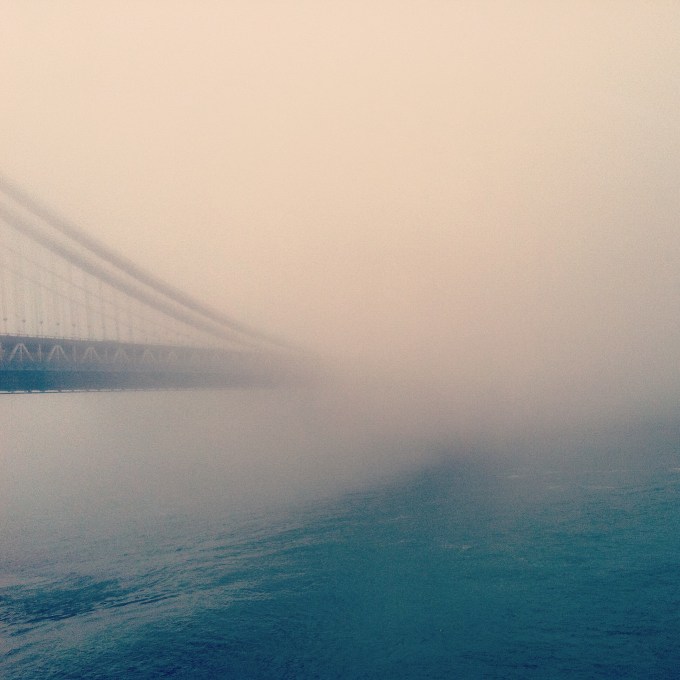
What an astonishing thing it is to find something. Children, who excel at it — chiefly because the world is still so new to them that they can’t help but notice it — understand this, and automatically delight in it… Finding is usually rewarding and sometimes exhilarating: a reunion with something old or an encounter with something new, a happy meeting between ourselves and some previously missing or mysterious bit of the cosmos.
Because these are the two most all-consuming and all-pervading of human experiences, the labels in which we try to classify and contain them are bound to be too small — as with love, so with loss. (This is what Joan Didion captured in her classic observation that “grief, when it comes, is nothing like we expect it to be.”)
The second half of Lost & Found is as much a meditation on finding the most precious of human finds — which is never a possession — as it is a love letter to her wife, ending with a beautiful meditation on how these twin experiences illuminate the central truth of life:
But while the Valley of Lost Things is at bottom sorrowful place — “the things we love are banished to it, and we ourselves are banished from it” — its melancholy has a mirror image in the ecstatic delight of finding things. Schulz writes:
Perhaps because I was still in those early, distorted days of mourning, when so much of the familiar world feels alien and inaccessible, I was struck, as I had never been before, by the strangeness of the phrase. Obviously my father hadn’t wandered away from me like a toddler at a picnic, or vanished like an important document in a messy office. And yet, unlike other oblique ways of talking about death, this one did not seem cagey or empty. It seemed plain, plaintive, and lonely, like grief itself. From the first time I said it, that day on the phone, it felt like something I could use, as one uses a shovel or a bell-pull: cold and ringing, containing within it both something desperate and something resigned, accurate to the confusion and desolation of bereavement.
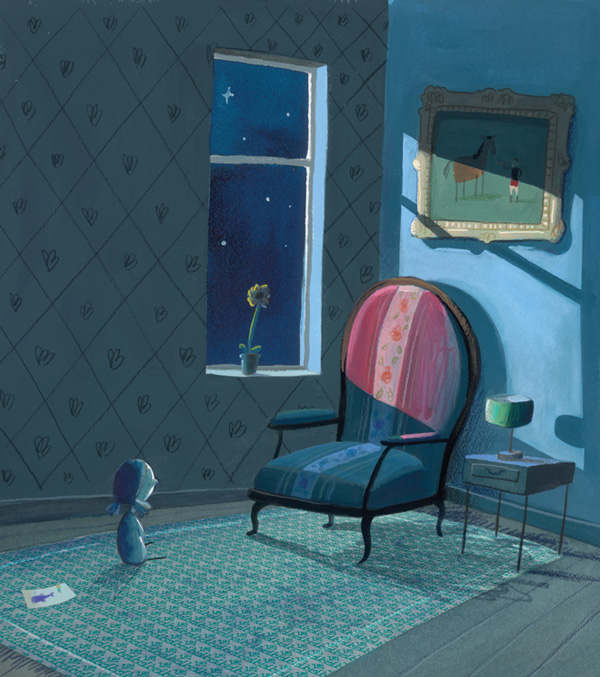
The verb “to lose” has its taproot sunk in sorrow; it is related to the “lorn” in “forlorn.” It comes from an Old English word meaning to perish, which comes from an even older word meaning to separate or cut apart. The modern sense of misplacing an object only appeared later, in the thirteenth century; a hundred years after that, “to lose” acquired the meaning of failing to win. In the sixteenth century we began to lose our minds; in the seventeenth century, our hearts. The circle of what we can lose, in other words, began with our own lives and each other and has been steadily expanding ever since. This is how loss felt to me after my father died: like a force that constantly increased its reach, gradually encroaching on more and more terrain.
The world itself seemed ephemeral, glaciers and species and ecosystems vanishing, the pace of change as swift as in a time-lapse, as if those of us alive today had been permitted to see it from the harrowing perspective of eternity. Everything felt fragile, everything felt vulnerable; the idea of loss pressed in all around me, like a hidden order to existence that emerged only in the presence of grief.
One of the many ways that loss instructs us is by correcting our sense of scale, showing us the world as it really is: so enormous, complex, and mysterious that there is nothing too large to be lost — and, conversely, no place too small for something to get lost there… Like awe and grief, to which it is closely related, loss has the power to instantly resize us against our surroundings; we are never smaller and the world never larger than when something important goes missing.
Because everything does suddenly feel so fragile — or, rather, because loss suddenly reveals that we are indeed “the fragile species” — grief itself becomes a kind of glue with which try to hold together the shattered pieces of our familiar world. In a passage of uncommon insight and sensitivity to what may be the most paradoxical and most underdiscussed aspect of loss, she writes:
This is the essential, avaricious nature of loss: it encompasses, without distinction, the trivial and the consequential, the abstract and the concrete, the merely misplaced and the permanently gone. We often ignore its true scope if we can, but for a while after my father died, I could not stop seeing the world as it really is, marked everywhere by the evidence of past losses and the imminence of future ones.
This is the essential, avaricious nature of loss: it encompasses, without distinction, the trivial and the consequential, the abstract and the concrete, the merely misplaced and the permanently gone. We often ignore its true scope if we can, but for a while after my father died, I could not stop seeing the world as it really is, marked everywhere by the evidence of past losses and the imminence of future ones.
This is the essential, avaricious nature of loss: it encompasses, without distinction, the trivial and the consequential, the abstract and the concrete, the merely misplaced and the permanently gone. We often ignore its true scope if we can, but for a while after my father died, I could not stop seeing the world as it really is, marked everywhere by the evidence of past losses and the imminence of future ones.
[…]


